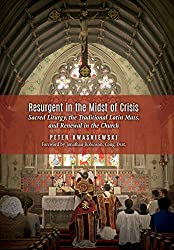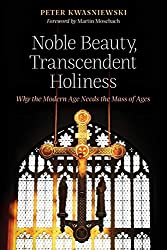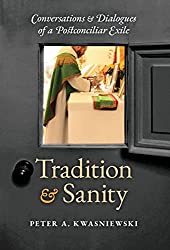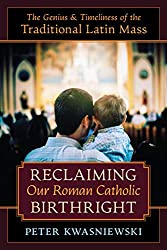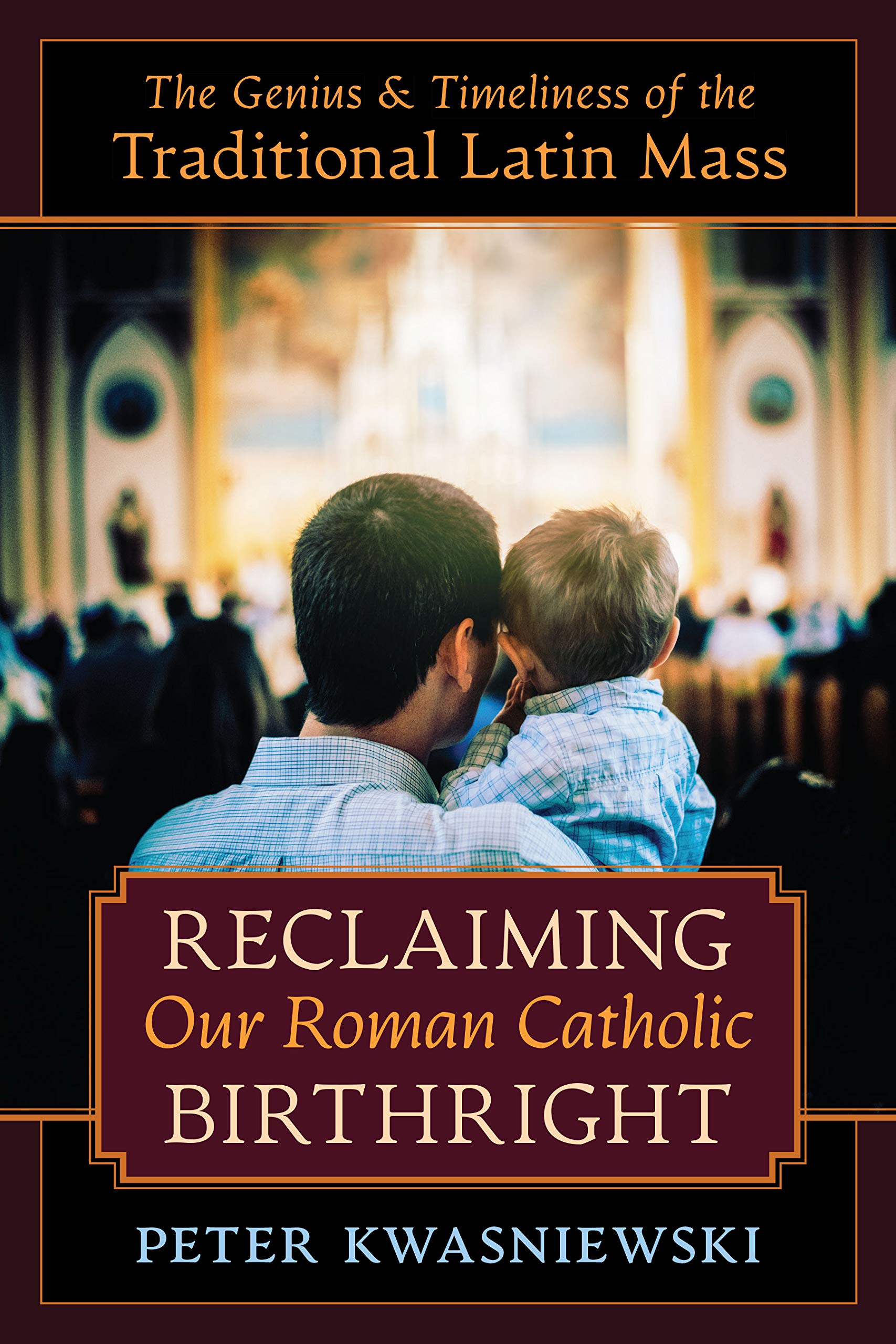
The last homily I heard was during a Novus Ordo Mass. The priest (a sincere good man, I felt) spoke of his hope for great renewal in the Church with the upcoming synod announced by Pope Francis.
Here, he was telling us laity, was our chance to get involved! Get involved in a process to bring new life to the Church!
Or should that be death, I thought . . . while my heart sank. For everything the priest said only echoed the deeply depressing death processes eating away at the Church for sixty years now.
Why should a copious helping of more of the same (lay participation in yet another synodal adventure reflecting the demands of the modern world) bring anything—except more death? How could this good priest be so obtuse?
It is with a heavy heart that I now turn from darkness to light, as expressed in Peter Kwasniewski’s recent book Reclaiming Our Catholic Birthright.
Because real renewal in the Church will only come with the kind of masterful, lucid thinking, which Kwasniewski shows in abundance here.
For unlike the priest, Peter Kwasniewski is not obtuse. He not only understands these terrible death processes in the Church, he articulates the only hope I see — with, moreover, unusual lucidity, clarity and depth.
This is the fourth of his books that I have reviewed which show why the modern spirit of the Church is so dry and lifeless.
As in Kwasniewski’s first three books, the main focus here is on the liturgy. So many cannot appreciate the often subtle reasons why the new Mass fails to renew the Church, fails to bring new life, but instead, in spite of Christ’s Real Presence, generates ennui.
And precisely because these reasons are too often subtle, not easily seen (at least not with the depth and weight they deserve to be seen) we desperately need the case for the usus antiquior to be made clear — and also why it is urgent.
This is what this book does. With razor-sharp precision, Kwasniewski makes it cogent: in its origins, as much as its day to day practice, the new liturgy apes the spirit of the modern world.
In its very nature, then, it betrays a utilitarian, rationalistic pandering to a superficial popular appeal – like a three minute pop song with simplistic lyrics extolling worldly cliches – rather than what it should be: a mighty symphony of praise to God that is decidedly non-utilitarian, decidedly non-populist, decidedly trans-rational . . .
In other words, those attending Holy Mass need something which reflects what is beyond this world, rather than the world itself.
The Church is slowly dying. Bored congregations go to Mass out of habit, anxious to get home and go online. Obtuse priests proclaim more of the same. More death. But courageous souls like Kwasniewski not only explain why this is deadly, they point to the only hope of life.
While this book expresses the important arguments made in the earlier works, it also branches into new ground, such as what the new liturgy can mean for children or “Tridentinophobia” and its causes.
There is also a robust rebuttal of F. Dwight Longenecker’s utilitarian arguments for the new liturgy here, which arguments, I have to say, strike me as obtuse as they do Kwasniewski.
Something else that particularly impressed me this time was the author’s detailed observation of how daily participation in the Old Rite subtly moulds the participant in a very different way than the New Rite.

This is based on the author’s careful contemplative comparison of the workings of both Masses, which he observed over many years while experiencing them side by side.
His conclusion? A far more contemplative way of being, filled with Romanitas and contra mundum, is slowly, gently fostered by the usus antiquior.
And certainly this would seem to explain the current tragic pro mundum efforts to stop this Mass …
After sitting on the fence in the St. John Paul II years, half-persuaded by Fr. Longenecker type arguments, I finally woke up in Pope Benedict’s reign: The Longenecker arguments and their ilk are terribly, terribly wrong.
They are unintentionally death-dealing or at least death-fostering.
Alas, along with the unintentionally death-fostering forces, there are plenty of intentionally death-dealing forces out there, too …
I salute this book and Dr. Kwasniewski’s untiring efforts to bring clarity and vision to a battlefield where terrible forces, intentional and unintentional, are clearly in play.
Foreword for Monarchy by Roger Buck
Buying Books at Amazon Through These Links Gives Us a Commission. This Supports Our Apostolate. Thank You if You Can Help Us Like This!

